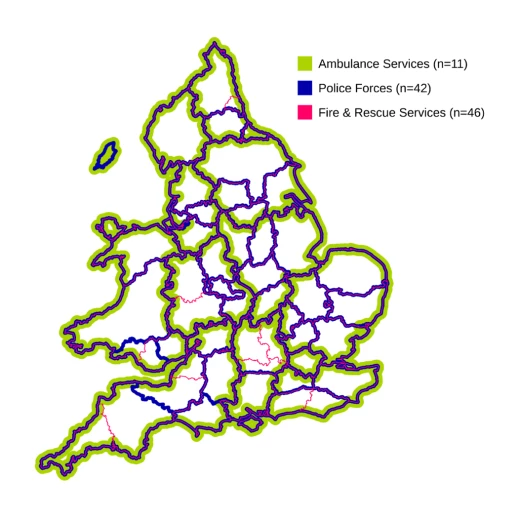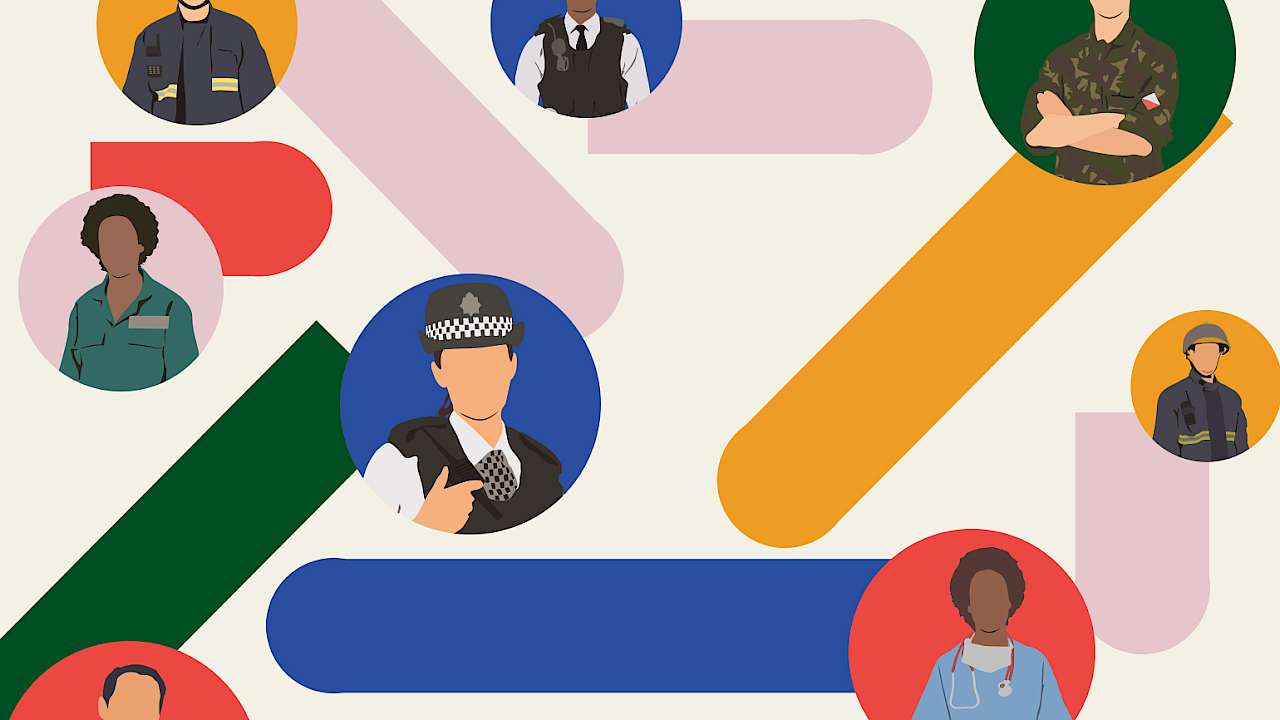Interoperability is defined as a “shared system of technology and teamwork built upon trust, identification, goals, communication, and flexibility” (Power et al., 2023).
Interoperability is defined as a shared system of technology and teamwork built upon trust, identification, goals, communication, and flexibility.
It is an essential feature of a multi-team system, where sub-teams must combine expertise and align their behaviour to achieve superordinate collective goals. In emergency response contexts, it has been found that interoperability is difficult to achieve and that failures of joint teamwork are common (Pollock, 2013; Saunders, 2022). Over the last decade, the Emergency Services in the UK have embarked on a significant journey of organisational change to promote interoperability. Spearheading this journey is JESIP – the cross-disciplinary team of interoperability experts from the Emergency Services and the Home Office, who have sought to implement change by developing new ways of working for the Emergency Services. However, implementing organisational change is inherently challenging. The perception and evaluation of change efforts vary significantly among individuals, organisations, and social groups, meaning the same change efforts can promote both success and failure simultaneously (De Keyser, et al., 2021).
The UK Emergency Services offer a unique case study, comprising three professions, 110 organisations, and thousands of employees (Figure 1). Studying how a decade-long organisational change initiative has been perceived within a complex multi-professional framework provides valuable insights into the intricacies of organisational change.

Figure 1. Emergency Services of England and Wales (2023)
Note: Scotland and Northern Ireland excluded as both countries have one Police, one Fire, and one Ambulance Service. There are also 3 additional non-geographic Police Services not shown (British Transport Police, Civil Nuclear Constabulary, Ministry of Defence Police)
Read more
Braun, V., & Clarke, V. (2019). Reflecting on reflexive thematic analysis. Qualitative Research in Sport, Exercise and Health, 11(4), 589–597. https:// doi.org/10.1080/2159676X.2019.1628806
Crandall, B., Klein, G. A., & Hoffman, R. R. (2006). Working Minds: A Practitioner’s Guide to Cognitive Task Analysis. https://doi.org/10.7551/mitpress/7304.001.0001
Power, N., Alcock, J., Philpot, R., & Levine, M. (2023). The Psychology of Interoperability: A Systematic Review and Case Study from the UK Emergency Services. PsyArXiv. https://doi.org/10.31234/osf.io/kzd9r
Power, N., & Alison, L. (2017). Redundant deliberation about negative consequences: Decision inertia in emergency responders. Psychology, Public Policy, and Law, 23(2), 243–258. https://doi.org/10.1037/law0000114
Wong, B. L. (2009). Learning Cognitive Task Analysis.
Copyright Information
As part of CREST’s commitment to open access research, this text is available under a Creative Commons BY-NC-SA 4.0 licence. Please refer to our Copyright page for full details.
IMAGE CREDITS: Copyright ©2024 R. Stevens / CREST (CC BY-SA 4.0)






